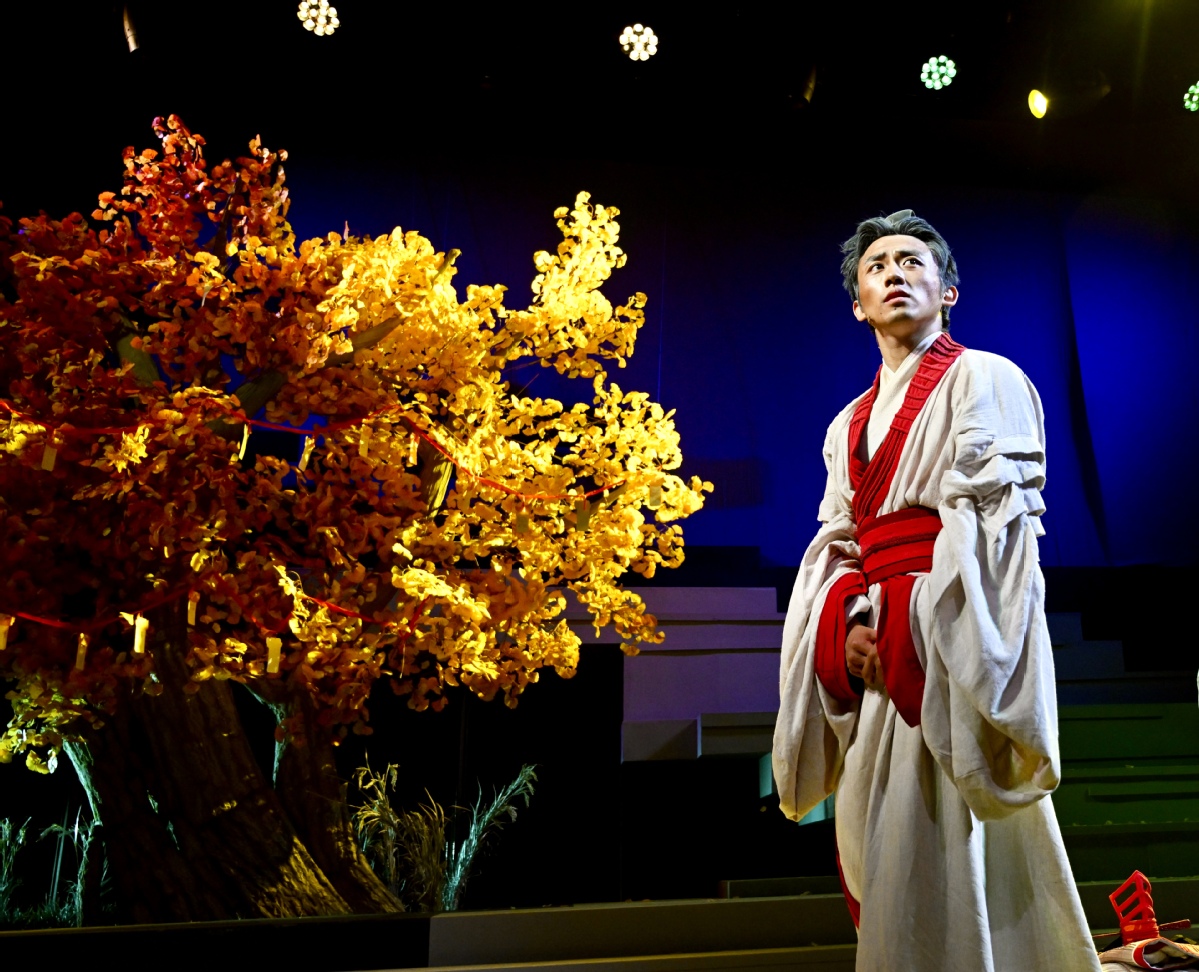

The story follows the young Confucius, who was born into a poor family, as he begins his education, displaying an interest in history, poetry, music and rituals, despite facing economic hardship. He believed in the transformative power of education and the cultivation of virtue and later started teaching, emphasizing personal morality, social harmony and the importance of rituals.
Huang intervened in the story with the creation of a fictional character named Xin Mao. The young fish warden initially appears in the role of a friend of Confucius, but the pair drift apart due to the different paths their lives take. He says that Xin Mao is intended to function as a mirror, reflecting the different decisions that he and his friend make as young men.
As an adult, Confucius found employment in his home state Lu in a series of modest positions, from minor official in charge of warehouses to animal husbandry, before being appointed to the influential post of minister of crime. He eventually fell from favor as a result of his reform efforts and tried for years to reenter public service to improve it from within, but ultimately found far greater success as a teacher.
Growing frustrated with his inability to implement his ideas in government, Confucius left Lu on a journey to various other Chinese states.
In the final years of his life, his focus was on teaching his disciples, and he became a revered figure, with students coming from all over the country to learn from him.
Confucius died at the age of 73 and while he didn't write any books himself, his students ensured that his teachings, discussions, and philosophies were recorded. These compilations form the backbone of Confucian literature.
Responding to why the story of Confucius' travels through the states has yet to be told in the play, Huang says that his own exploration of the philosopher is ongoing, leaving ample room for further development.